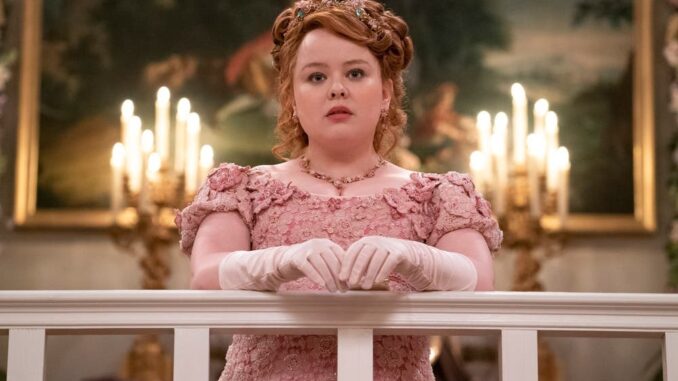
Introduction
Nicola Coughlan, the beloved star of Netflix’s Bridgerton, recently took to social media to address a growing trend of people commenting on her weight loss journey as “brave.” In a powerful post, Coughlan challenged this narrative, highlighting the harmful implications of equating weight loss with bravery. This article will delve into Coughlan’s response, explore the issue of body positivity, and discuss the importance of challenging harmful stereotypes.
Nicola Coughlan’s Response
Coughlan’s post began with a simple statement: “I’m not ‘brave’ for losing weight.” She went on to explain that her weight loss journey was a personal one, driven by her own health and well-being. She emphasized that her decision to share her journey was a choice, not a requirement.
Coughlan also addressed the notion that weight loss is a sign of strength or bravery. She argued that this narrative can be harmful, as it implies that people who don’t lose weight are weak or lacking in courage. She pointed out that everyone’s body is different, and there’s no one-size-fits-all approach to health and wellness.
The Importance of Body Positivity
Coughlan’s response is a powerful reminder of the importance of body positivity. Body positivity is a movement that promotes acceptance and appreciation of all body types. It challenges harmful beauty standards and encourages people to love their bodies, regardless of their size or shape.
One of the key principles of body positivity is that everyone’s body is valid and worthy of respect. This means that there’s no “right” or “wrong” way to look. It’s important to celebrate diversity and challenge negative stereotypes about body image.
The Dangers of ‘Brave’ Comments
The term “brave” is often used to describe people who lose weight or make other changes to their appearance. However, this can be harmful as it implies that these changes are difficult or require extraordinary courage. This can create a toxic culture where people feel pressured to conform to unrealistic beauty standards.
Furthermore, using the term “brave” can minimize the experiences of people who struggle with body image issues. It can suggest that their struggles are not valid or worthy of empathy.
Challenging Harmful Stereotypes
To create a more inclusive and supportive environment, it’s important to challenge harmful stereotypes about body image. This includes avoiding comments that equate weight loss with bravery or strength. Instead, focus on celebrating diversity and promoting body acceptance.
It’s also important to be mindful of the language we use when discussing body image. Avoid using negative or judgmental terms, and strive to use inclusive and respectful language.
Conclusion
Nicola Coughlan’s response to “brave” comments is a powerful reminder of the importance of body positivity and challenging harmful stereotypes. By advocating for acceptance and inclusivity, we can create a more supportive and empowering environment for everyone.
FAQs
- What is body positivity?
- Body positivity is a movement that promotes acceptance and appreciation of all body types.
- Why is it important to challenge harmful stereotypes about body image?
- Challenging harmful stereotypes can help create a more inclusive and supportive environment for everyone.
- How can I promote body positivity?
- You can promote body positivity by using inclusive language, celebrating diversity, and challenging negative stereotypes.
- What are the dangers of using the term “brave” to describe weight loss?
- Using the term “brave” can imply that weight loss is difficult or requires extraordinary courage, which can be harmful and create a toxic culture.
- What can I do to support someone who is struggling with body image issues?
- You can support someone who is struggling with body image issues by listening to them without judgment, offering encouragement, and helping them find resources.
